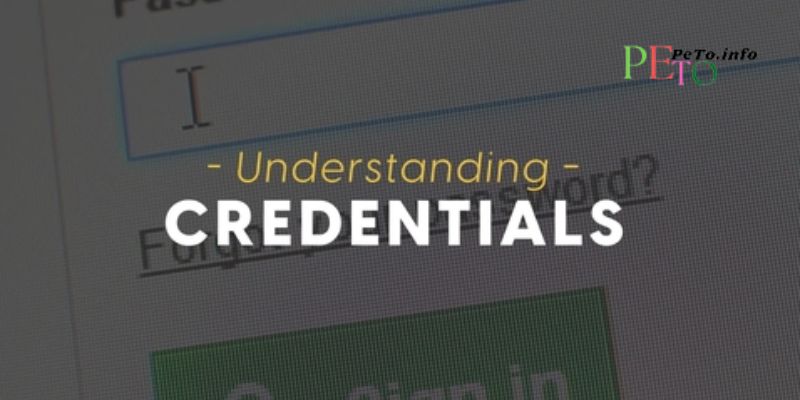In today’s complex financial landscape, individuals often find themselves grappling with an array of financial decisions. Whether it’s planning for retirement, optimizing taxes, or managing investments, the need for professional guidance has never been more critical. This article from Peto serves as a detailed guide on how to hire a finance planner, ensuring that you make informed decisions about your financial future.
Contents
- 1 A Comprehensive Guide on How to Hire a Finance Planner
- 1.1 Identifying Your Needs
- 1.2 Understanding Credentials
- 1.3 Checking Experience and Reputation
- 1.4 Understanding Fee Structure
- 1.5 Interviewing Multiple Planners
- 1.6 Reviewing Credentials Periodically
- 1.7 Reviewing the Financial Plan
- 1.8 Monitoring Progress Regularly
- 1.9 Maintaining Open Communication
- 1.10 Seeking Education
- 1.11 Trust Your Instincts
- 2 Conclusion
A Comprehensive Guide on How to Hire a Finance Planner
Identifying Your Needs
The first crucial step in the journey of how to hire a finance planner is to clearly identify your specific financial needs. Are you looking for assistance with retirement planning, investment strategies, tax optimization, or a comprehensive financial plan that encompasses all these aspects? Understanding your requirements will help you narrow down your search and find a finance planner whose expertise aligns with your goals.
Understanding Credentials
Finance planners come with a variety of credentials, and it’s essential to be aware of what these designations mean. The industry-standard certifications include Certified Financial Planner (CFP), Chartered Financial Analyst (CFA), and Personal Financial Specialist (PFS). These designations indicate that the planner has undergone rigorous training, passed exams, and adheres to ethical standards. Checking for these credentials ensures that you are working with a professional who possesses the necessary qualifications.
Checking Experience and Reputation
Experience is a key factor in the financial planning industry. Look for planners who have a track record of successfully helping clients with similar financial goals. Research their background, read client testimonials, and check for any disciplinary actions against them. Regulatory bodies such as the Securities and Exchange Commission (SEC) or the Financial Industry Regulatory Authority (FINRA) can provide valuable information about a planner’s history and reputation.
Understanding Fee Structure
Finance planners may charge fees in various ways, such as hourly fees, commission-based fees, or a percentage of assets under management. It’s crucial to understand the fee structure upfront and ensure that it aligns with your preferences and financial situation. Be wary of any potential conflicts of interest that might arise due to the planner’s compensation model. Clear communication about fees is essential for establishing a transparent and trustful relationship.
Interviewing Multiple Planners
Meeting with several finance planners is a crucial step in finding the right professional for your needs. During these interviews, discuss your financial situation, goals, and expectations. Pay attention to the planner’s communication style, ability to listen, and how well they understand your unique circumstances. It’s also an opportunity to ask about their approach to financial planning, investment philosophy, and any specific strategies they might recommend. Through these interactions, you can gauge which planner aligns best with your values and objectives.
Reviewing Credentials Periodically
Periodically reviewing the credentials of potential finance planners is essential for staying informed and ensuring ongoing trust. Check for any updates to their qualifications and certifications, as the financial industry is dynamic, and planners should stay current with industry standards and regulations. A finance planner committed to continuous learning and professional development is more likely to provide you with up-to-date and effective financial advice.
Reviewing the Financial Plan
Once you have selected a finance planner, the next step is to develop a comprehensive financial plan. This plan should address your specific goals, risk tolerance, and time horizon. Carefully review the plan to ensure it aligns with your expectations and provides a clear roadmap for achieving your financial objectives. An effective financial plan should cover various aspects, including budgeting, investment strategies, tax planning, insurance, and retirement planning.
Monitoring Progress Regularly
Successful financial planning is an ongoing process that requires regular monitoring and adjustments. Schedule periodic reviews with your finance planner to assess the progress toward your goals, evaluate the performance of your investments, and make any necessary adjustments to the financial plan. A good planner should provide you with insights into market changes, regulatory updates, and any other factors that may impact your financial situation.
Maintaining Open Communication
Effective communication is the foundation of a successful relationship with your finance planner. Regularly communicate any changes in your financial situation, life events, or goals. This ensures that your planner can make timely adjustments to your financial plan and provide guidance based on the most up-to-date information. Open and honest communication fosters a trusting and collaborative relationship, enhancing the effectiveness of the financial planning process.
Seeking Education
While your finance planner is there to guide you, it’s also essential to seek financial education yourself. Understanding the basics of investing, financial markets, and key financial concepts will empower you to make informed decisions and actively participate in the planning process. A good finance planner will not only provide advice but also educate you on financial matters, increasing your financial literacy and confidence in managing your money.
Trust Your Instincts
In the end, trust is paramount in any professional relationship. Throughout the process of hiring a finance planner, trust your instincts and choose a professional with whom you feel comfortable. A finance planner who demonstrates integrity, actively listens to your concerns, and prioritizes your best interests is more likely to contribute significantly to your financial well-being.
Conclusion
Hiring a finance planner is a significant step towards securing your financial future. By following this comprehensive guide on how to hire a finance planner, you can navigate the selection process with confidence and make informed decisions that align with your unique financial goals. Remember that financial planning is a dynamic and ongoing process, and a trusted finance planner can provide valuable support as you navigate the complexities of the financial landscape.
Conclusion: So above is the How to Hire a Finance Planner: A Comprehensive Guide to Securing Your Financial Future article. Hopefully with this article you can help you in life, always follow and read our good articles on the website: Peto.info
Related Articles
-
The Hyundai Ioniq 6 might serve as your next mobile workplaceOctober 16, 2022







